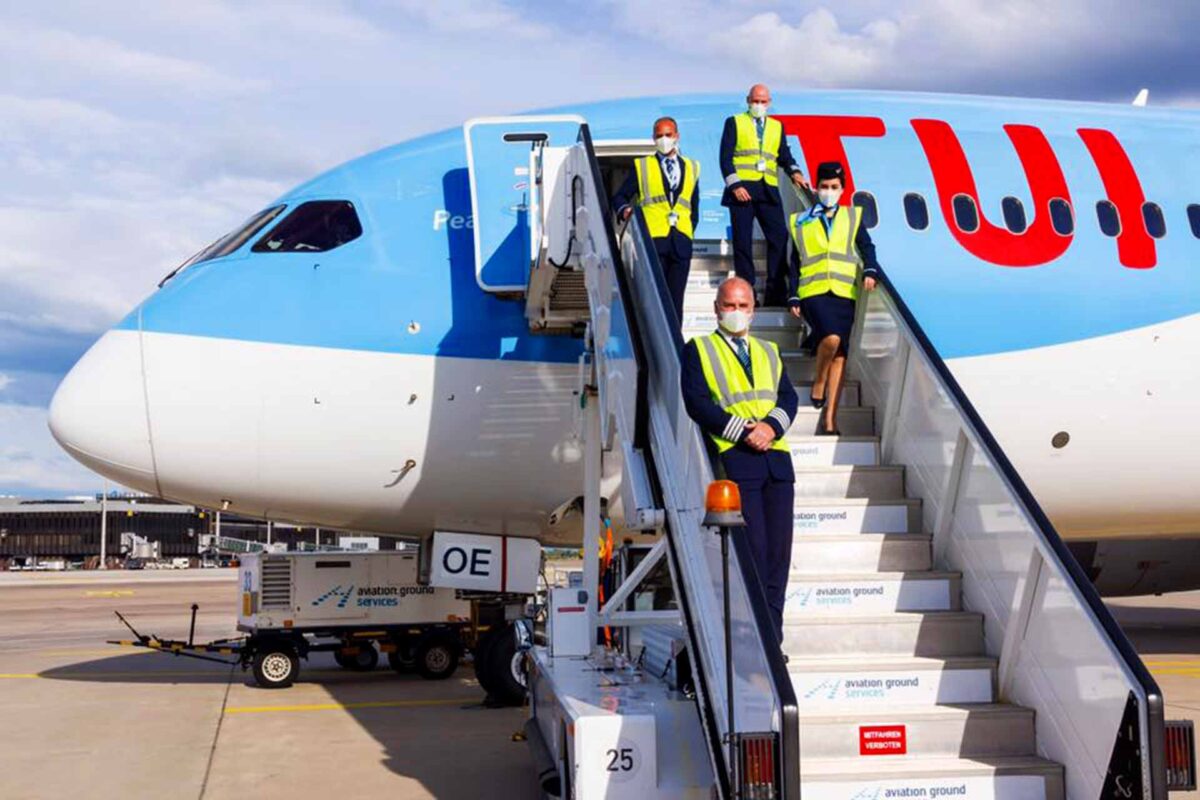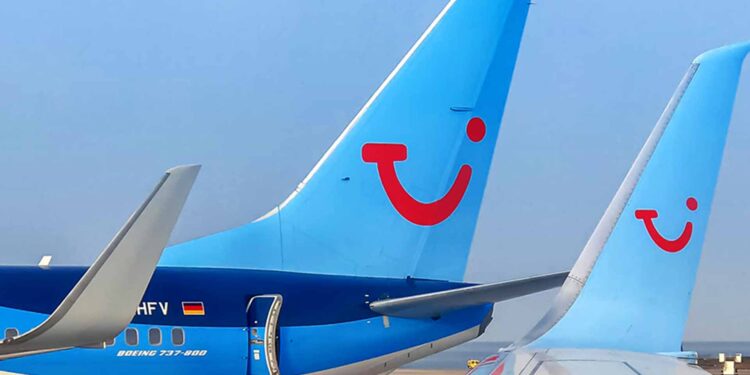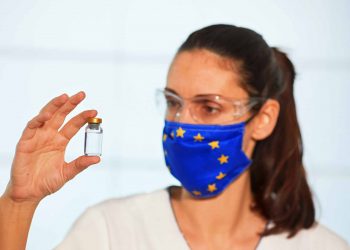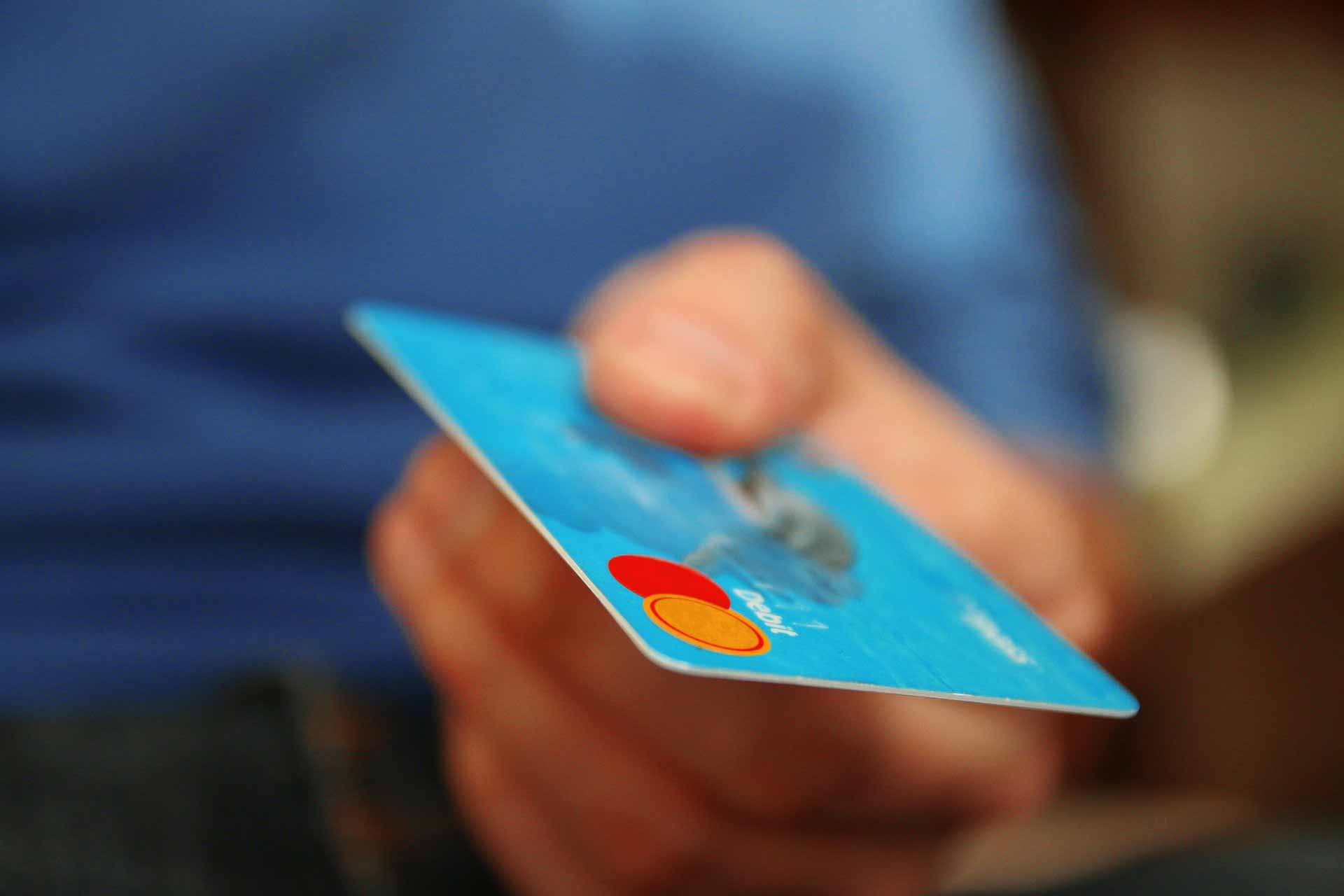European Commission approves the third financial aid package €1.25 billion euro German measure to recapitalise TUI. The European Commission has approved German plans to contribute up to €1.25 billion to the recapitalisation of TUI AG (TUI), the parent company of the TUI Group, as part of a wider support package. The measure is under under the State aid Temporary Framework.
As many other companies active in the tourism sector, TUI has been hit particularly hard by the coronavirus crisis.
Margrethe Vestager
Executive Vice-President Margrethe Vestager, in charge of competition policy, added: “With this measure, Germany will contribute up to €1.25 billion to TUI’s recapitalisation and help the company weather the crisis. At the same time, the State will be sufficiently remunerated for the risk taxpayers assume and the support will come with strings attached to limit distortions of competition. I welcome the participation by private investors to the plan, as it limits the need for State aid while contributing to the recovery of TUI.”
The German recapitalisation measure

TUI is a German major leisure tourism group operating in several Member States. Through its various subsidiaries, TUI operates hotels, cruise ships, airlines, aircrafts, travel agencies, tour operators and online portals. TUI suffered substantial losses due to the coronavirus outbreak and the travel restrictions that Germany and other countries had to impose to limit the spread of the virus. Despite the liquidity support measures already granted to the company by Germany in March and August 2020 (under the schemes SA.59433, SA.56814 and SA.56863, as amended by SA.58021), the significant drop in travel demand and the measures implemented to limit the spread of the virus continue to deteriorate the financial situation of the group. As a result, TUI is currently facing a risk of default and insolvency.
Germany notified to the Commission, under the Temporary Framework, a State recapitalisation of TUI of up to €1.25 billion. The recapitalisation comprises:
- €420 million silent participation convertible into TUI’s equity; and
- up to €680 million non-convertible silent participation (€400 million of which will only be provided in case the envisaged €400 million in guarantee measures is not provided by the Länder or the Federal government); and
- €150 million of convertible warrant bond.
German travel giant TUI receives third billion-euro package
The Commission found that the recapitalisation measure notified by Germany is in line with Article 107(3)(b) TFEU and the conditions set out in the Temporary Framework. In particular, as regards:
- Conditions on the necessity, appropriateness and size of the intervention: The measure will not exceed the minimum needed to ensure the viability of TUI and will not go beyond restoring its capital position before the coronavirus outbreak. When assessing the proportionality of the recapitalisation measure, the Commission took also into account the other State aid measures in favour of the company in the context of the coronavirus outbreak.
- Conditions on the State’s entry, remuneration and incentives to exit from the capital of the company: The recapitalisation aid will prevent an insolvency of TUI, which would have serious consequences on German employment and the economy. Germany will receive an appropriate remuneration for the investment and there are additional mechanisms to incentivise TUI to redeem the State’s silent participation and the warrant bond obtained as a result of the recapitalisation. Germany submitted a business plan until fiscal year 2025 prepared by TUI to demonstrate the impact of the recapitalisation instruments. It also committed to work out a credible exit strategy within 12 months after the aid is granted, unless the State’s intervention is reduced below the level of 25% of equity by then. If six years after receiving the recapitalisation aid the State’s intervention is not reduced below 15% of TUI’s overall equity, a restructuring plan for TUI will be notified to the Commission.
Bans on TUI management bonuses
- Conditions regarding governance: Until the State has exited in full, TUI and its subsidiaries are subject to bans on dividends and share buybacks, other than in relation to the State. Moreover, until at least 75% of the recapitalisation is redeemed, a strict limitation of the remuneration of TUI’s management, including a ban on bonus payments, is applied. These conditions aim at incentivising an exit of the State as soon as the economic situation allows.
- Prohibition of cross-subsidisation and acquisition ban: To ensure that TUI does not unduly benefit from the recapitalisation aid by the State to the detriment of fair competition in the Single Market, it cannot use the aid to support economic activities of integrated companies that were in economic difficulties already on 31 December 2019. Moreover, until at least 75% of the recapitalisation is redeemed, TUI is in principle prevented from acquiring a stake of more than 10% in competitors or other operators in the same line of business.
- Public transparency and reporting: TUI will have to publish information on the use of the aid received, including on how the use of the aid received supports the company’s activities in line with EU and national obligations linked to the green and digital transformations.
TUI rescue mix involves the German government, banks and private investors
The Commission concluded that the recapitalisation measure is necessary, appropriate and proportionate to remedy a serious disturbance in the economy of the Member States: the measure aims at restoring the financial position and liquidity of TUI in the exceptional situation caused by the coronavirus pandemic, while maintaining the necessary safeguards to limit competition distortions. TUI does not hold a significant market power on the relevant markets on which it operates.
On this basis, the Commission approved the measure under EU State aid rules.
The recapitalisation measure is part of a larger recapitalisation package, which also foresees (i) a capital increase by private investors of up to €500 million, (ii) potentially up to €400 million in guarantee measures by the Länder or the Federal government (still to be agreed, see also above), (iii) a prolongation from March 2021 to July 2022 of a €500 million liquidity facility from the coronavirus programme of the Federal Development Bank (KfW), and (iv) a €200 million secured revolving credit facility to be provided by the KfW and other commercial banks.

EU Temporary Framework gives recapitalisation to TUI
The Commission has adopted a Temporary Framework to enable Member States to use the full flexibility foreseen under State aid rules to support the economy in the context of the coronavirus outbreak. The Temporary Framework, as amended on 3 April, 8 May, 29 June and 13 October 2020, provides for the following types of aid, which can be granted by Member States:
- Direct grants, equity injections, selective tax advantages and advance payments of up to €100,000 to a company active in the primary agricultural sector, €120,000 to a company active in the fishery and aquaculture sector and €800,000 to a company active in all other sectors to address its urgent liquidity needs. Member States can also give, up to the nominal value of €800,000 per company zero-interest loans or guarantees on loans covering 100% of the risk, except in the primary agriculture sector and in the fishery and aquaculture sector, where the limits of €100,000 and €120,000 per company respectively, apply.
- State guarantees for loans taken by companies to ensure banks keep providing loans to the customers who need them. These state guarantees can cover up to 90% of risk on loans to help businesses cover immediate working capital and investment needs.
- Subsidised public loans to companies (senior and subordinated debt) with favourable interest rates to companies. These loans can help businesses cover immediate working capital and investment needs.
- Safeguards for banks that channel State aid to the real economy that such aid is considered as direct aid to the banks’ customers, not to the banks themselves, and gives guidance on how to ensure minimal distortion of competition between banks.
- Public short-term export credit insurance for all countries, without the need for the Member State in question to demonstrate that the respective country is temporarily “non-marketable”.
Research and development (R&D)
- Support for coronavirus related research and development (R&D) to address the current health crisis in the form of direct grants, repayable advances or tax advantages. A bonus may be granted for cross-border cooperation projects between Member States.
- Support for the construction and upscaling of testing facilities to develop and test products (including vaccines, ventilators and protective clothing) useful to tackle the coronavirus outbreak, up to first industrial deployment. This can take the form of direct grants, tax advantages, repayable advances and no-loss guarantees. Companies may benefit from a bonus when their investment is supported by more than one Member State and when the investment is concluded within two months after the granting of the aid.
- Support for the production of products relevant to tackle the coronavirus outbreak in the form of direct grants, tax advantages, repayable advances and no-loss guarantees. Companies may benefit from a bonus when their investment is supported by more than one Member State and when the investment is concluded within two months after the granting of the aid.
- Targeted support in the form of deferral of tax payments and/or suspensions of social security contributions for those sectors, regions or for types of companies that are hit the hardest by the outbreak.
TUI wage subsidies for employees
Tui cuts 10,000 workers’ salaries by up to 50% amid Covid-19 crisis

- Support in the form of wage subsidies for employees for those companies in sectors or regions that have suffered most from the coronavirus outbreak, and would otherwise have had to lay off personnel.
- Targeted recapitalisation aid to non-financial companies, if no other appropriate solution is available. Safeguards are in place to avoid undue distortions of competition in the Single Market: conditions on the necessity, appropriateness and size of intervention; conditions on the State’s entry in the capital of companies and remuneration; measures – conditions regarding the exit of the State from the capital of the companies concerned; conditions regarding governance including dividend ban and remuneration caps for senior management; prohibition of cross-subsidisation and acquisition ban and additional measures to limit competition distortions; transparency and reporting requirements. Recapitalisations above the threshold of €250 million are subject to separate notification and, if they benefit companies with significant market power on at least one of the relevant markets in which they operate, Member States must propose additional measures to preserve effective competition in those markets, in the form of structural or behavioural commitments.
- Support for uncovered fixed costs for companies facing a decline in turnover during the eligible period of at least 30% compared to the same period of 2019 in the context of the coronavirus outbreak. The support will contribute to a part of the beneficiaries’ fixed costs that their revenues cannot cover. The fixed costs can be up to a maximum amount of €3 million per undertaking
Support measures under Temporary Framework
The Temporary Framework enables Member States to combine all support measures with each other, except for loans and guarantees for the same loan and exceeding the thresholds foreseen by the Temporary Framework. It also enables Member States to combine all support measures granted under the Temporary Framework with existing possibilities to grant de minimis to a company of up to €25,000 over three fiscal years for companies active in the primary agricultural sector, €30,000 over three fiscal years for companies active in the fishery and aquaculture sector and €200,000 over three fiscal years for companies active in all other sectors. At the same time, Member States have to commit to avoid undue cumulation of support measures for the same companies to limit support to meet their actual needs.
Member States to mitigate the socio-economic impact
Furthermore, the Temporary Framework complements the many other possibilities already available to Member States to mitigate the socio-economic impact of the coronavirus outbreak, in line with EU State aid rules. On 13 March 2020, the Commission adopted a Communication on a Coordinated economic response to the COVID-19 outbreak setting out these possibilities. For example, Member States can make generally applicable changes in favour of businesses (e.g. deferring taxes, or subsidising short- time work across all sectors), which fall outside State Aid rules. They can also grant compensation to companies for damage suffered due to and directly caused by the coronavirus outbreak.
The Temporary Framework will be in place until the end of June 2021. As solvency issues may materialise only at a later stage as this crisis evolves, for recapitalisation measures only the Commission has extended this period until the end of September 2021. With a view to ensuring legal certainty, the Commission will assess before those dates if it needs to be extended.















